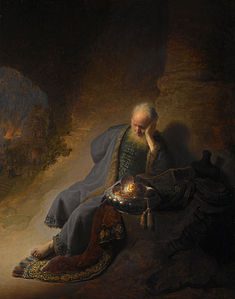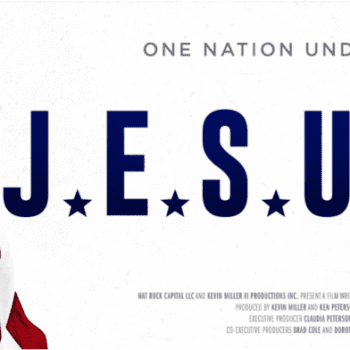Lamentations comes from the word “lament” which means a “passionate expression of grief or sorrow.”
(For more in the Bible Matters series, visit the Raven Foundation here.)
The book was written during the Babylonian exile, a traumatic time for the ancient Jews. Jerusalem was conquered, the temple was destroyed, and many people were exiled throughout the Babylonian Empire.

Lamentations is about grief. It implores us to express our sorrow and grief and to honor sorrow and grief in others. If we do not express our sorrow and grief, we will not heal from that pain. Instead, we will try to medicate it through drugs and alcohol, or through acts of self-destructive or socially-destructive behaviors.
Lamentations is also about the human propensity to scapegoat. Rene Girard, the founder of mimetic theory, claims that former enemies find unity by converging their hostility against a common enemy, or a scapegoat. This phenomenon of the scapegoat mechanism is clearly on display in Lamentations, as one character asserts that enemies and former friends have united against her. Lamentations is a political protest. It claims that the world isn’t right and is a direct critique of the scapegoating mechanism.
The book also explores that nature of God. Zion, a character who represents the city of Jerusalem, claims that God is behind all the scapegoating and that God’s violence is out of control. Zion asserts that God is abusive and oversteps the bounds of justice. But another character, the “Strong Man” of chapter 3, says that God punished Jerusalem because of its sins. The Strong Man claims that the God’s punishment is just, that it fits the crime of Jerusalem. Yet, Zion continues to assert that it is innocent and doesn’t deserve this punishment from God.
Lamentations understanding of human nature is profound. We need to express grief and we do have a propensity to unite against scapegoats. But its theology crumbles due to inner conflict. The protest of Zion is part of the Bible’s theological trajectory that claims God desires mercy, not violent sacrifice. We see this trajectory in the prophets. Christians ultimately see it in the Jesus, who took human violence upon himself and offered divine forgiveness in return.
What does this mean for today? What does it mean for the protests of racism in the US? For violence in general? And what is God doing about it?
Ellie Wiesel, the 20th century Jewish thinker and survivor of the Holocaust, claimed about God, “Out we not to think of your pain too? Watching your children suffer at the hands of your other children, haven’t you also suffered?”
The Jewish-Christian Story transforms our theology so that we no longer think that God behind our violence or anyone’s violence; rather, God suffers with our scapegoats – the victims of violence – and implores us to stop our propensity for violence so that we can “love our neighbors as we love ourselves.”











